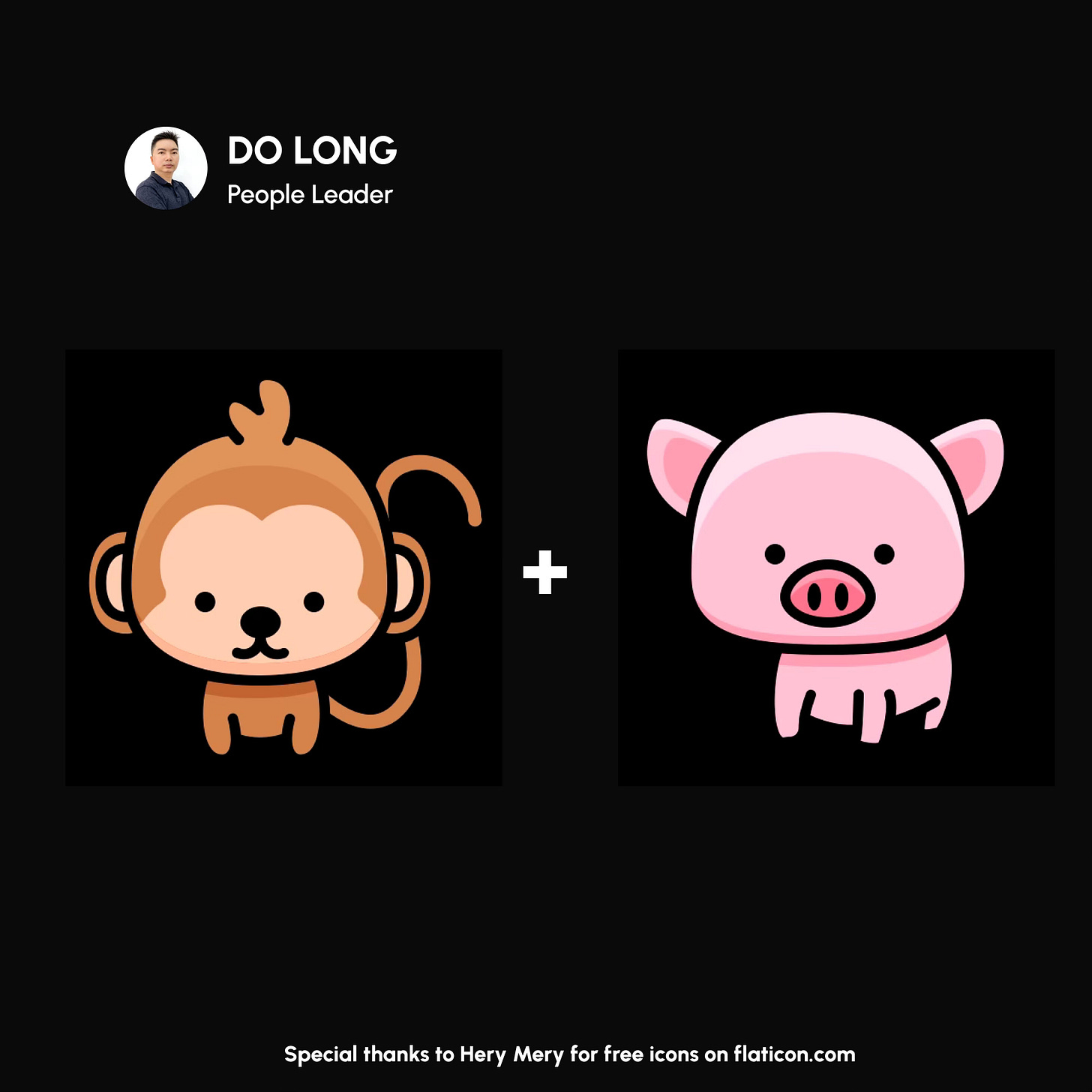Monkey and Pig
Here I come with a story which teaches us an important lesson about commitment and productivity.
Once upon a time, there was a master and two students: monkey and pig.
Monkey rarely made commitments. He simply focused on starting work as soon as it was assigned. However, he usually delivered on his tasks and was eager to receive more work if the master had any.
Pig, on the other hand, always made commitments. He promised to deliver on tasks in planning meetings, and the master was happy with his enthusiasm. However, Pig was lazy and usually started working on tasks near the deadline. As a result, he rarely delivered successfully, and many of his tasks were delayed or full of issues.
While the master was happy with Pig's commitments, he preferred the results of Monkey's work.
Above is the inspired story I made based on characters of the famous novel "Journey to the West".
This story inspired me to make commitments to myself and try to deliver on what I commit to. I will try to avoid overcommitting, which means I will select tasks wisely and deliver on them when I commit to them. In other words, it is also important to be focused and to deliver on the commitments that we have made.
In a team context, I believe you will occasionally see a team with these two types of members: one full of talent but lacking commitment and the other lacking talent but eager to make promises. As a people leader, I think we need to have a way to ensure that these people can work and collaborate together as a team. We need to help to boost individual confidence and create psychological safety to encourage making commitments. In addition, we need to ensure that people focus on delivering on their commitments, otherwise productivity will decrease over time.
Be aware of setting clear goals and fostering a culture of "committing-owning" to help increase people's motivation to deliver tasks. Below are several suggestions to embrace this culture:
Set clear and achievable goals. People are more likely to be committed to their work if they know what they are working towards and believe that they can achieve it.
Give people autonomy and ownership over their work. People are more likely to be motivated if they feel like they have control over their work and are responsible for the outcome.
Provide regular feedback and support. People need to know how they are doing and to receive support when they need it.
Recognize and reward good performance. When people are recognized for their achievements, it encourages them to continue to do good work.
Create a culture of commitment. This means setting the expectation that people are committed to their work and that they will meet their deadlines and deliver on their promises.



